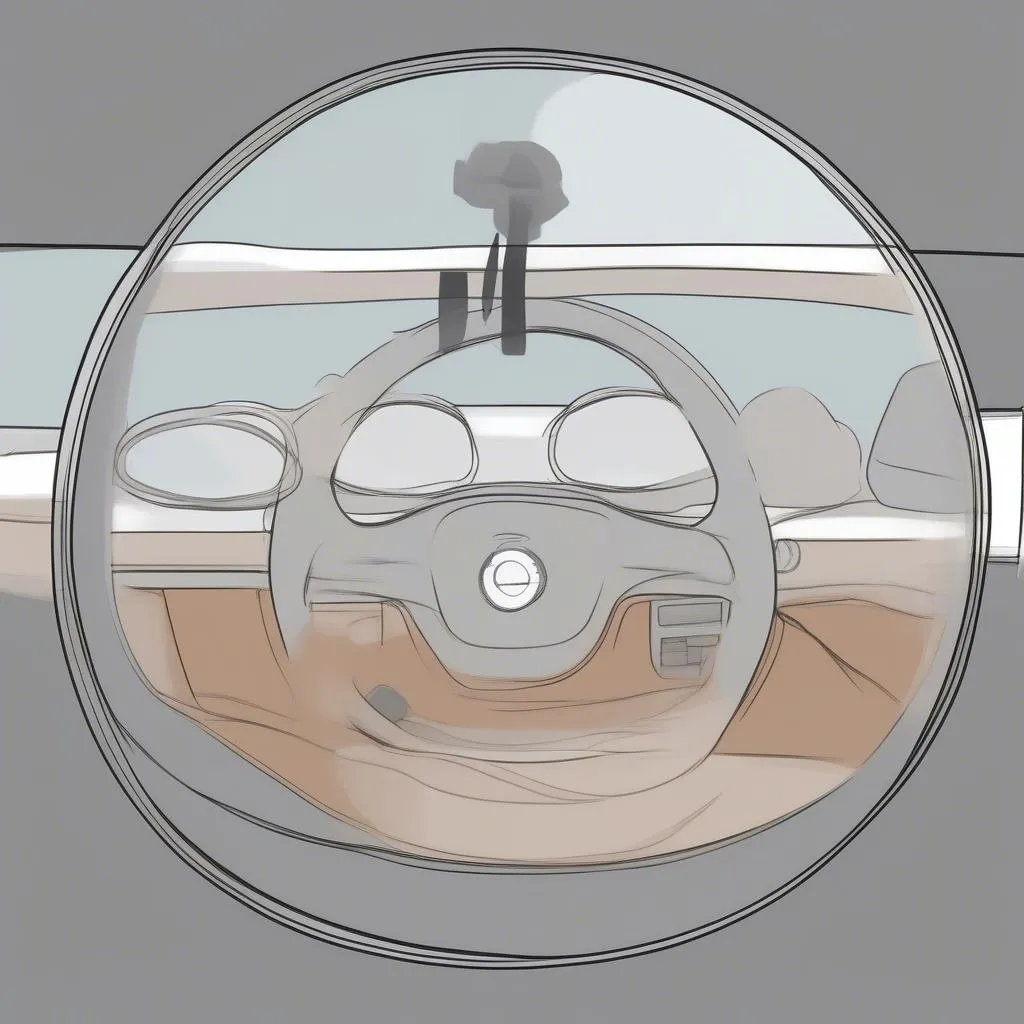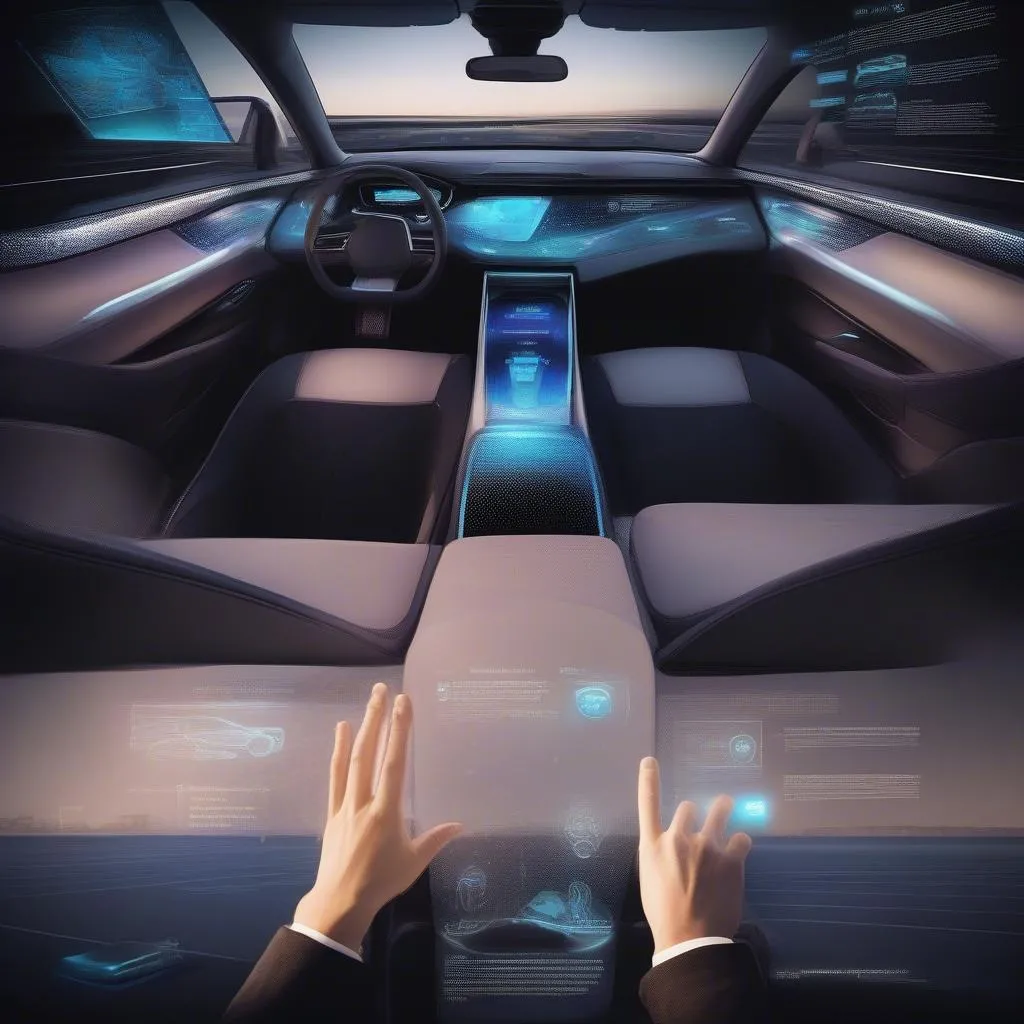Imagine this: you’re walking back to your car after a long day of shopping at the King of Prussia Mall in Pennsylvania. You press the unlock button on your key fob, but something feels off. There’s a faint flicker of light inside the car, and you realize the alarm didn’t chirp like it usually does. You suddenly remember a story about car break-ins happening in broad daylight, and a chill runs down your spine. This, my friends, is where a tiny device called the “Car Motion Sensor” plays a big role in keeping unwanted visitors at bay.
What is a Car Motion Sensor, and How Does it Work?
As a seasoned auto repair expert specializing in European car diagnostics, I’ve seen firsthand the confusion surrounding car motion sensors. Let’s break it down:
From a Mechanic’s Perspective: A car motion sensor is a small but mighty component of your car alarm system. Think of it as a watchful guardian that constantly scans for any suspicious movement inside or around your vehicle.
Technically Speaking: These sensors use various technologies like infrared, ultrasonic, or microwave to detect changes in the surrounding environment. When it senses movement exceeding a pre-set threshold, it triggers the alarm system, scaring off potential thieves and alerting you to a potential threat.
The Economic Impact: A functioning car motion sensor can save you a lot of heartache and money in the long run. By deterring theft, you avoid the cost of replacing stolen items, repairing damages, and dealing with insurance claims.
Common Questions about Car Motion Sensors
Let’s address some questions you might have about this crucial safety feature:
Q: How can I tell if my car has a motion sensor?
A: Most modern cars with factory-installed alarm systems come equipped with motion sensors. Check your owner’s manual or look for visual clues like small, dome-shaped sensors usually located on the dashboard or near the rearview mirror.
Q: Can I adjust the sensitivity of my car’s motion sensor?
A: Yes, many car alarm systems allow you to adjust the sensitivity of the motion sensor. This is useful if you live in a busy area or have pets, as it prevents false alarms triggered by passing traffic or your furry friend moving around inside the car.
Q: My car alarm keeps going off for no reason. Could it be a faulty motion sensor?
A: While a faulty motion sensor can be the culprit, it’s best to rule out other possibilities first, such as a dying car battery or a loose connection in the alarm system. A qualified mechanic with experience in car alarm systems can help you diagnose and fix the issue.
Q: Can I install an aftermarket car motion sensor?
A: Absolutely! Aftermarket car alarm systems often come with customizable options, including motion sensors. Consult a reputable car audio and security shop for professional installation.
Troubleshooting Car Motion Sensor Issues:
If you suspect a problem with your car motion sensor, here’s what you can do:
- Check your owner’s manual: It often contains information on how to adjust the sensitivity of your alarm system or disable the motion sensor temporarily.
- Inspect the sensor: Look for any visible damage or loose connections.
- Test the sensor: Try waving your hand in front of the sensor to see if it triggers the alarm.
- Seek professional help: If you’re unable to resolve the issue yourself, don’t hesitate to contact a qualified auto electrician or car alarm specialist.
 Car Motion Sensor Location
Car Motion Sensor Location
Beyond Security: Other Applications of Motion Sensors in Cars
Car motion sensors are not limited to just security. They’re increasingly being used for other functions, including:
- Automatic door unlocking: Some cars use motion sensors to detect the presence of the key fob nearby and automatically unlock the doors as you approach.
- Interior lighting: Motion sensors can activate interior lights when you open the car door or reach for something inside.
- Climate control: Advanced climate control systems use motion sensors to detect the number of passengers and adjust the temperature and airflow accordingly.
Driving into the Future: The Evolving Role of Car Motion Sensors
As technology advances, we can expect to see even more innovative uses for car motion sensors. From enhanced security features to improved comfort and convenience, these tiny sensors will continue to play a big role in shaping the future of the automotive industry.
 Futuristic Car Interior
Futuristic Car Interior
Have more questions about your car’s electronics or diagnostics?
Don’t hesitate to reach out! We have a team of automotive experts available 24/7 to help you with any issues, including software installation for your diagnostics tools. Contact us via Whatsapp at +84767531508, and we’ll be happy to assist you.
Looking for More Car Tech Insights?
If you found this article helpful, be sure to check out our other informative articles on car alarm suppliers and other related topics on our website.
We’re passionate about sharing our knowledge and helping you stay informed about the latest advancements in automotive technology. Let us know in the comments below if you have any other questions or topics you’d like us to cover!